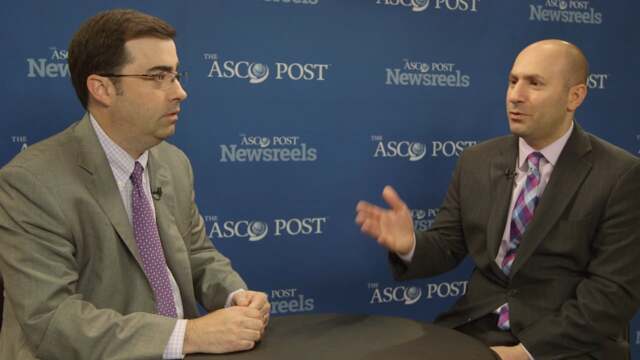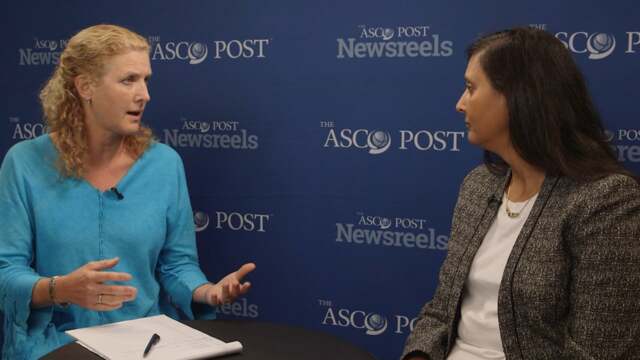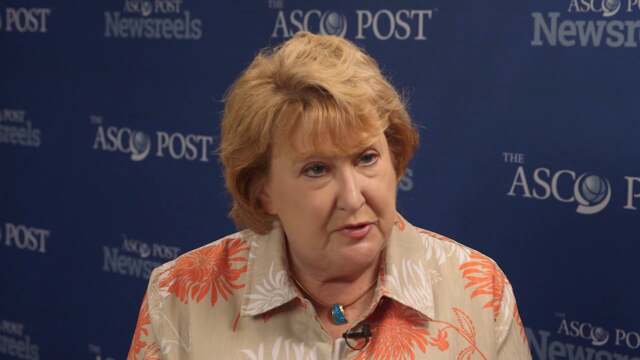Antonio Palumbo, MD, on Multiple Myeloma: Results From the CASTOR Trial
2016 ASCO Annual Meeting
Antonio Palumbo, MD, of the University of Torino, discusses this phase III study of daratumumab, bortezomib, and dexamethasone versus bortezomib and dexamethasone in patients with relapsed or refractory multiple myeloma (Abstract LBA4).
David F. McDermott, MD, of Beth Israel Deaconess Medical Center, and Toni K. Choueiri, MD, of the Dana-Farber Cancer Institute, discuss an update on data from phase I and II studies of nivolumab given to patients with metastatic renal cell carcinoma, including long-term overall survival and potential predictors of benefit (Abstract 4507).
Paul E. Goss, MD, PhD, of Massachusetts General Hospital Cancer Center and Harvard Medical School, discusses disease-free survival results from a study extending adjuvant letrozole for 5 years after completing an initial 5 years of aromatase inhibitor therapy alone or preceded by tamoxifen (Abstract LBA1).
Lisa A. Carey, MD, of the University of North Carolina, and Tuya Pal, MD, of H. Lee Moffitt Cancer Center & Research Institute, discuss the racial disparities in cancer risk management among BRCA carriers across a diverse sample of young black, Hispanic, and non-Hispanic white breast cancer survivors (Abstract LBA1504).
Sumanta K. Pal, MD, of City of Hope, and Toni K. Choueiri, MD, of Dana-Farber Cancer Institute, discuss findings on BGJ398 in patients with previously treated advanced/metastatic urothelial carcinoma with FGFR3 alterations (Abstract 4517).
Patricia J. Goldsmith, Chief Executive Officer of CancerCare, which provides free, professional support services to anyone affected by cancer, discusses findings from six distinct surveys with input from more than 3,000 individuals at varying stages of their cancer experience.





